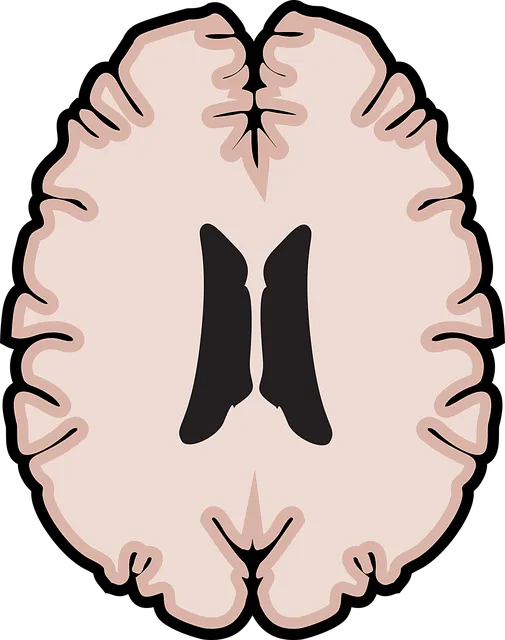Program evaluation is a critical component of effective mental health care, as demonstrated by Littleton Kaiser Permanente's strategies. Through combining qualitative and quantitative data collection methods, including surveys, interviews, and the dedicated mental health phone number, they assess program success, participant experiences, and areas for improvement. This evidence-based approach utilizes KPIs to track patient outcomes, engagement, and service quality, ensuring tailored interventions for complex mental health issues. By integrating these evaluation techniques, Littleton Kaiser Permanente drives continuous improvement in their mental wellness programs, benefiting both internal operations and community mental health awareness.
Mental wellness program evaluation is a cornerstone of effective mental health care, ensuring resources are allocated efficiently. This article explores crucial methods used to assess programs at Littleton Kaiser Permanente, with a focus on their unique approach. We delve into the importance of data collection, comparing qualitative and quantitative assessments, and highlight key performance indicators (KPIs) tailored for mental health services. Discover how a comprehensive evaluation strategy can be implemented and monitored, optimizing care for patients reaching out to the Littleton Kaiser Permanente mental health phone number.
- Understanding the Importance of Program Evaluation in Mental Health Care
- The Role of Data Collection Methods in Assessing Mental Wellness Programs
- Qualitative vs. Quantitative Assessment: Which is More Effective for Littleton Kaiser Permanente?
- Key Performance Indicators (KPIs) Specific to Mental Health Services
- Implementing and Monitoring a Comprehensive Evaluation Strategy
Understanding the Importance of Program Evaluation in Mental Health Care

Program evaluation is a crucial component of mental health care, offering insights into the effectiveness and impact of services provided by organizations like Littleton Kaiser Permanente. By employing comprehensive assessment methods, mental health professionals can ensure that their programs align with clients’ needs and deliver tangible results. This process involves collecting and analyzing data to measure the success of interventions, identify areas for improvement, and inform strategic decision-making.
The benefits extend beyond internal operations; they also empower stakeholders, including insurance providers like Kaiser Permanente, to make informed choices regarding program funding and development. For instance, a well-conducted evaluation can demonstrate the value of mental wellness coaching programs or the efficacy of specific journaling exercises in Journaling Exercise Guidance. This evidence-based approach fosters continuous improvement, ultimately enhancing the overall mental wellness of individuals seeking support through such initiatives.
The Role of Data Collection Methods in Assessing Mental Wellness Programs

Effective evaluation of mental wellness programs relies heavily on robust data collection methods. These techniques are crucial for understanding the impact and outcomes of interventions aimed at improving mental health, such as those offered by organizations like Littleton Kaiser Permanente. By utilizing various data collection approaches, including surveys, interviews, and observation, researchers can gather valuable insights into participants’ experiences, perceptions, and behavioral changes. For instance, phone-based assessments have gained prominence, allowing for anonymous and accessible gathering of information about mental health status, treatment preferences, and satisfaction with services, as demonstrated by Littleton Kaiser Permanente’s mental health phone number.
Moreover, specific evaluation methods like Social Skills Training, Stress Management Workshops, and Mental Health Awareness campaigns provide structured frameworks to assess different aspects of mental wellness. These organized programs often employ pre- and post-intervention measurements to track improvements in areas such as social functioning, stress resilience, and emotional regulation. Incorporating such data collection methods enables comprehensive evaluations, ensuring that mental wellness initiatives are evidence-based, effective, and tailored to the needs of participants, ultimately fostering better outcomes for organizations like Littleton Kaiser Permanente and similar institutions focusing on community mental health awareness.
Qualitative vs. Quantitative Assessment: Which is More Effective for Littleton Kaiser Permanente?

At Littleton Kaiser Permanente, evaluating mental wellness programs requires a strategic approach that balances qualitative and quantitative assessment methods. While quantitative measures provide objective data on program impact, such as participation rates and satisfaction scores, they might not capture the nuanced experiences of individuals engaging in these programs. Qualitative assessments, through techniques like interviews and focus groups, offer rich insights into personal transformations, emotions expressed, and challenges faced during self-awareness exercises and compassion cultivation practices.
Integrating both approaches is key to designing effective mental health education programs. Quantitative data helps identify trends and program effectiveness on a larger scale, while qualitative feedback reveals individual stories and areas for improvement. This dual strategy ensures that programs like those offered at Littleton Kaiser Permanente address not just the statistics but also the lived experiences of participants, fostering genuine mental wellness in the community. Remember, reaching out for help is the first step; the mental health phone number at Littleton Kaiser Permanente is readily available to support individuals seeking guidance and resources.
Key Performance Indicators (KPIs) Specific to Mental Health Services

Mental wellness programs often rely on Key Performance Indicators (KPIs) to measure success and identify areas for improvement, particularly when addressing complex issues like mental health. Unlike traditional performance metrics, KPIs specific to mental health services should focus on patient outcomes, engagement, and service quality. For instance, tracking the number of patients completing a stress reduction method or compassion cultivation practice can indicate program effectiveness in fostering resilience and emotional well-being.
Additionally, KPIs could include measures related to risk management planning for mental health professionals, ensuring staff are equipped to handle crises and maintain safe working environments. These might involve monitoring incident reports, evaluating crisis intervention training participation rates, and tracking referrals to external support services—all vital components in maintaining a robust mental health care system, especially when considering the Littleton Kaiser Permanente mental health phone number as a resource for community members seeking assistance.
Implementing and Monitoring a Comprehensive Evaluation Strategy

Implementing a comprehensive evaluation strategy is vital for any mental wellness program aiming to enhance self-esteem improvement and stress reduction methods among participants. At Littleton Kaiser Permanente, their mental health phone number serves as a key touchpoint for individuals seeking support. The evaluation process should be multi-faceted, incorporating both quantitative and qualitative data collection methods. This might include surveys, interviews, and focus groups to gauge participant satisfaction, identify areas of improvement, and gain insights into the program’s impact on their mental well-being.
Regular monitoring is essential to ensure the program stays effective and aligned with its goals. By analyzing the collected data, mental health professionals can refine the program structure, adapt activities, and tailor interventions to address specific needs. This ongoing evaluation also facilitates risk management planning, enabling practitioners to anticipate and mitigate potential risks associated with participants’ mental health journeys.
Evaluating mental wellness programs is paramount in ensuring effective care, and Littleton Kaiser Permanente can lead the way with a comprehensive strategy. By combining qualitative and quantitative methods, such as stakeholder feedback and data analytics, the organization can assess programs holistically. Key Performance Indicators tailored to mental health services provide a clear direction for improvement. Through diligent implementation and monitoring, Littleton Kaiser Permanente can optimize its services, ensuring patient well-being and enhancing its reputation, accessible through the mental health phone number, as a leader in holistic mental healthcare.






